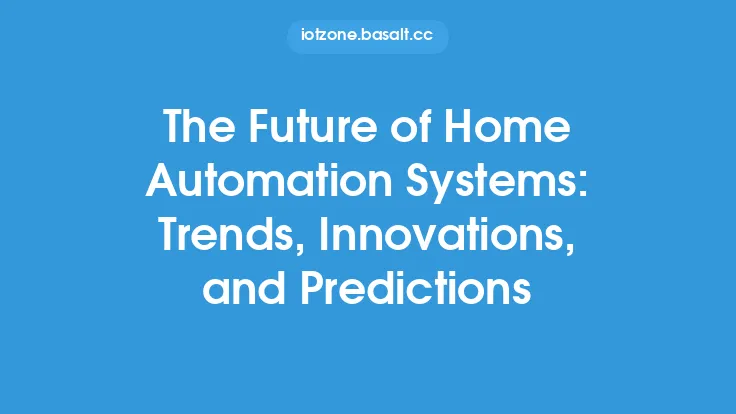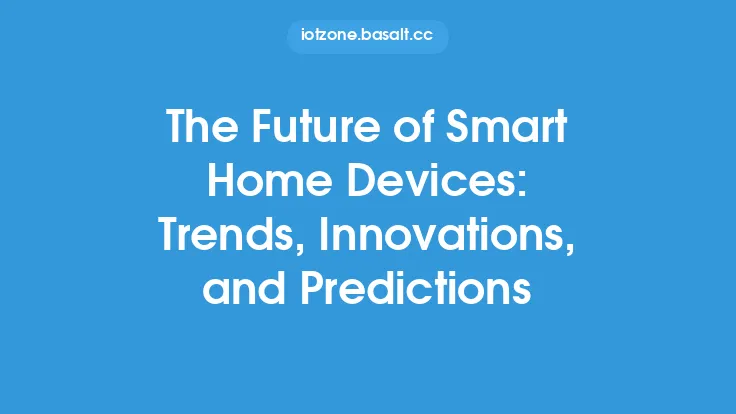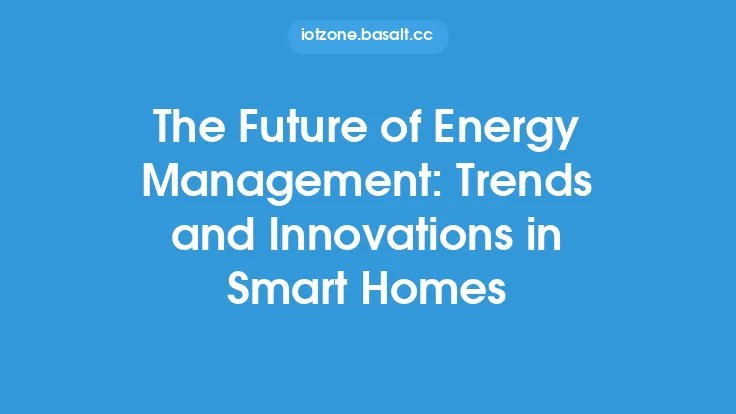The concept of home security has undergone significant transformations over the years, driven by advancements in technology and the evolving needs of homeowners. As we move forward, it's essential to explore the trends and innovations that will shape the future of home security. In this article, we'll delve into the latest developments and cutting-edge technologies that are redefining the way we protect our homes and loved ones.
Introduction to Emerging Technologies
The integration of emerging technologies such as the Internet of Things (IoT), artificial intelligence (AI), and machine learning (ML) is revolutionizing the home security landscape. These technologies enable the creation of sophisticated security systems that can detect and respond to potential threats in real-time. For instance, AI-powered security cameras can analyze video feeds to identify suspicious activity, while ML algorithms can learn from patterns and anomalies to improve the overall security posture of a home.
Advancements in Biometric Authentication
Biometric authentication is becoming increasingly popular in home security, offering a more secure and convenient alternative to traditional passwords and keys. Facial recognition, fingerprint scanning, and voice recognition are just a few examples of biometric technologies being used to grant access to homes. These systems use advanced algorithms to verify identities, ensuring that only authorized individuals can enter the premises. Moreover, biometric authentication can be integrated with other security systems, such as door locks and alarm systems, to provide an additional layer of protection.
The Rise of Edge Computing
Edge computing is a paradigm shift in the way data is processed and analyzed in home security systems. By processing data at the edge of the network, closer to the source, edge computing reduces latency, improves real-time analytics, and enhances the overall performance of security systems. This is particularly important in home security, where every second counts in responding to potential threats. Edge computing also enables the use of more advanced analytics, such as object detection and facial recognition, which can be used to improve the accuracy and effectiveness of security systems.
The Importance of Cybersecurity
As home security systems become increasingly connected to the internet, cybersecurity is becoming a major concern. Hackers can potentially exploit vulnerabilities in these systems to gain unauthorized access to homes, compromising the safety and security of occupants. To mitigate this risk, it's essential to implement robust cybersecurity measures, such as encryption, secure authentication, and regular software updates. Homeowners must also be aware of the potential risks associated with connected devices and take steps to protect their networks and systems from cyber threats.
The Role of 5G Networks
The advent of 5G networks is poised to revolutionize the home security landscape, offering faster data transfer rates, lower latency, and greater connectivity. 5G networks will enable the widespread adoption of IoT devices, allowing for more comprehensive and integrated security systems. Moreover, 5G will facilitate the use of more advanced technologies, such as augmented reality and virtual reality, which can be used to enhance the security and surveillance capabilities of homes.
The Future of Home Security: Predictions and Projections
As we look to the future, it's clear that home security will continue to evolve and adapt to emerging technologies and threats. Some predictions and projections for the future of home security include the increased use of AI and ML, the adoption of more advanced biometric authentication methods, and the integration of home security systems with other smart home devices. Additionally, there will be a growing focus on cybersecurity and the protection of connected devices, as well as the development of more sophisticated and autonomous security systems.
Conclusion
The future of home security is exciting and rapidly evolving, driven by advancements in technology and the evolving needs of homeowners. As we move forward, it's essential to stay informed about the latest trends and innovations in home security, from emerging technologies like AI and IoT to the importance of cybersecurity and the role of 5G networks. By understanding these developments and their potential impact on home security, homeowners can make informed decisions about how to protect their homes and loved ones, ensuring a safer and more secure future for all.





